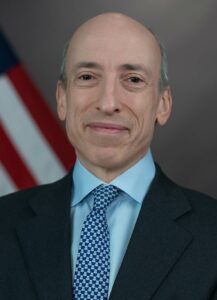The Securities and Exchange Commission (SEC) has adopted two rules related to changes to the definitions of ‘dealer’ and ‘government securities dealer’, with the final rule set to inflict more scrutiny and compliance burdens on hedge funds.
 The final rule is set to require certain hedge funds, among other market participants, to register if they meet one of two qualitative standards.
The final rule is set to require certain hedge funds, among other market participants, to register if they meet one of two qualitative standards.
Under the SEC’s final rules, an entity would qualify as a dealer or government securities dealer if they regularly express trading interest as close to the best price on both sides of the market for the same security, or earn revenue primarily from capturing bid-ask spreads or from capturing incentives offered by trading venues.
If applicable, the new rule requires the market participants in question to register with the commission, become members of a self-regulatory organisation (SRO), and comply with federal securities laws and regulatory obligations.
The SEC has also confirmed that the final rules exclude: any person that has (or controls) assets that total less than $50 million, investment companies registered under the Investment Company Act of 1940, central banks, sovereign entities, and international financial institutions (as defined in the final rules).
Speaking to the change, Gary Gensler, chair of the SEC, highlighted that the move is set to protect investors and “promote market integrity, resiliency, and transparency,” he added: “These measures are common sense. Congress did not intend for registration and regulatory requirements to apply to some dealers and not to others.
“Absent an exemption or exception, if anyone trades in a manner consistent with de facto market making, it must register with us as a dealer – consistent with Congress’s intent.”
Since the Commission initially proposed the rules on 28 March 2022 the market has understandably shared doubt as to the feasibility of the change.
While some, like Gensler, believe the move to be an update which reflects a change of the times across the industry, some, such as Jack Inglis, chief executive of AIMA, believe that “although the Commission did not adopt some problematic aspects that were included in the proposed rule,” the adoption is a significant departure from the market’s current set up.
“The US SEC has incorrectly concluded that customers of dealers, including certain AIMA members, may be dealers themselves – a clear departure from the statutory definition and understanding of what it has meant to be a securities ‘dealer’ for the past 90 years […] AIMA will review the final rule text and assess next steps,” said Inglis.
The final rules are set to become effective 60 days after publication of the adopting release in the Federal Register and compliance date to follow one year after the effective date of the final rules.
The SEC explained that this change is set to “support market resiliency and stability and enhance investor protection across the US Treasury market and other securities markets,” and has come as a result of the advancement in electronic trading and subsequent evolution of the roles of market participants.
The Commission claims that these developments could lead to “investors and the markets [lacking] important protections that result from an entity’s registration and regulation under the Exchange Act.”



